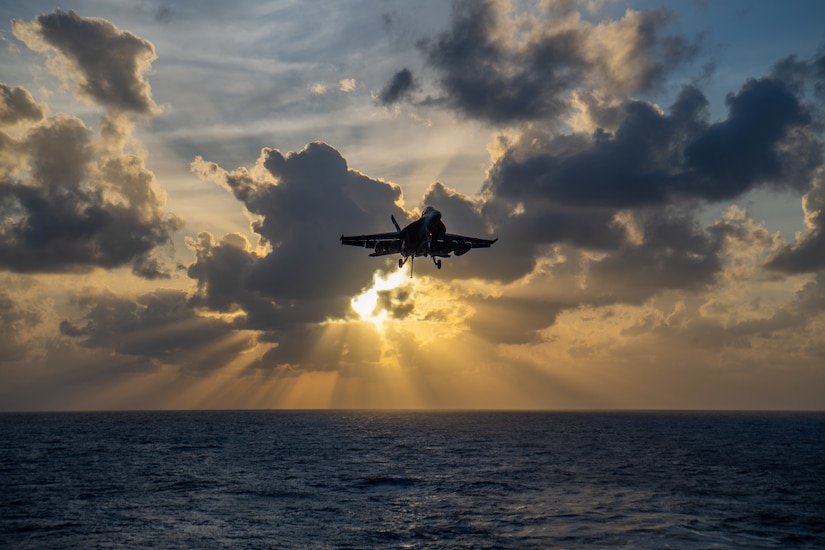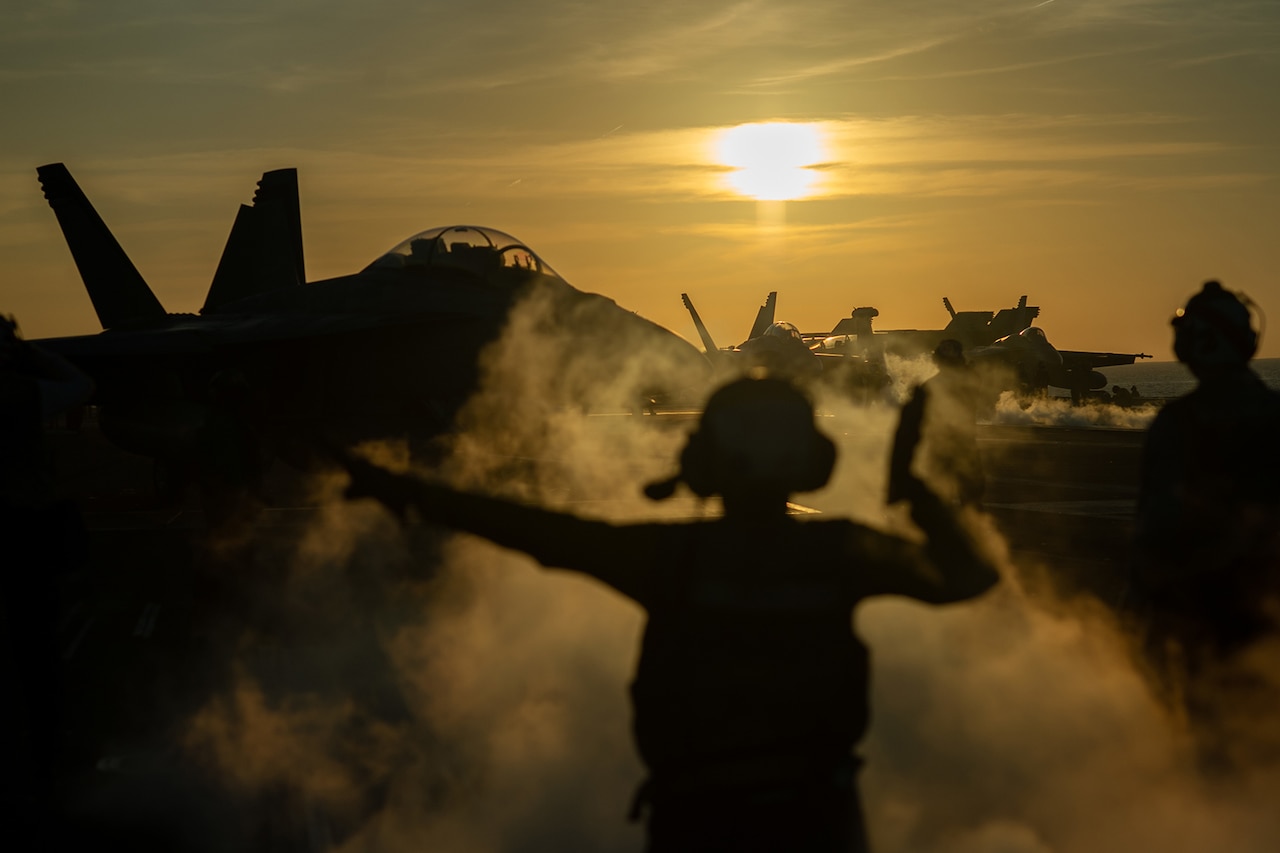Official websites use .gov
Secure .gov websites use HTTPS
China remains the pacing challenge for the Defense Department and is fomenting policies designed to change the international rules-based order that has guaranteed peace since World War II.
The security environment is growing more complicated and that is why DOD is "strengthening and bolstering our regional alliances and partnerships to ensure that our combined deterrent is stronger than ever before with the aim of sustaining and ensuring regional peace and security," a senior defense official speaking on background said.
The network of allies and partners in the Indo-Pacific is the basis for the international rules-based order. "Our network of treaty allies around the world, but particularly in the Indo-Pacific stretching from the East China Sea down to Oceana, is vital to the security and the stability of the region," the official said.
The alliances raise "the cost of coercion and aggression by any actor seeking to rewrite the rules of the road or to unilaterally change the status quo," he said.
This is the secretary's sixth trip to the region. He was last in the Indo-Pacific in November 2022 where he met with representatives of the Association of Southeast Asian Nations in Siem Reap, Cambodia. But the secretary is also constantly in contact with defense leaders in the region. And while there have been six trips to the region, he has met with many of the leaders as part of the Ukraine Defense Contact Group and during the NATO Summit in Madrid. He constantly keeps in telephonic or video contact, and he has hosted many of the leaders at the Pentagon. He met with Japanese Defense Minister Yasukazu Hamada earlier this month, for example.
During the trip, the secretary will focus on capabilities and interoperability with the treaty allies, the official said. This is key to deterring any challenge in the region. Specifically, the security environment is seeing a sharp uptick in destabilizing Chinese operational behavior. These include a major increase in dangerous air-to-air intercepts, as well as destabilizing PRC behavior including swarms of maritime militia vessels in contentious areas of the South China Sea.
China is not the only challenge in the region. North Korea is also disturbing the peace with increasing provocations including an unprecedented number of ballistic missile launches in the last year, and threats of testing nuclear weapons.
In both South Korea and the Philippines Austin is looking to continue to expand the scope of cooperation across multiple operational domains, including cyberspace and space. The secretary will also promote interoperability and look to build increasing complexity into combined training exercises and activities, the senior defense official said.
In South Korea, the two militaries will look to strengthen joint readiness training, including a return to live fire exercises in the country, the official said.
At the second stop in Manila, the secretary will get his first opportunity to meet with the new national security leaders, including President Ferdinand R. Marcos, Jr. He will be hosted by Carlito Galvez, who is currently the acting secretary of National Defense. He will also meet with the Army Gen. Andres C. Centino, the chief of defense, and Secretary of Foreign Affairs Enrique Manalo.
"We anticipate that 2023 is going to be a very exciting year for the alliance," a senior defense official traveling with the secretary said. "Right now, I think we're seeing a very positive upswing in the trajectory of the relationship."
In the Philippines, the two nations would like to build on the Balikatan exercise held in 2022. "We executed the largest iteration ever of our annual Balikatan exercise in its long history with around 9,000 troops across our military services, Coast Guard's and special forces," the official said. "We're really looking forward to building on these achievements this spring."
The secretary will also discuss speeding up implementation of the Enhanced Defense Cooperation Agreement. This allows the United States to rotate troops into the Philippines and operate facilities in the country.
The secretary will highlight the closeness of the U.S. alliance with South Korea during meetings with Minister of National Defense Lee Jong-sup. "The U.S.-ROK alliance is truly unique in terms of a combined force with unparalleled degrees of interoperability and integration, and that has stood us in very good stead for 70 years," another senior defense official said.
The secretary will speak about the importance of extended deterrence to the alliance. "We have already done a lot to strengthen our extended deterrence posture in the past year, that included the deployments of fifth-generation aircraft over the past several months, the (USS) Ronald Reagan port visit," the official said. "We have upgraded our dialogue on extended deterrence and I think are having a rich and productive discussion."
Part of this effort is ensuring the two militaries have the training and readiness needed to deter any foe. "This undergirds deterrence," the official said. "We are committed to taking the steps necessary to maintain combat credible deterrence as a U.S.-ROK alliance."
The secretary will also discuss what the alliance means to the greater Indo-Pacific community. The South Korean military is very capable, and "we'll be talking about — ways that we can work together to help increase the capability of our partners, both in Southeast Asia and potentially the Pacific Islands," the official said.
With the Philippines, the two sides are looking to modernize the alliance to address new and emerging threats. "So obviously, the one that is first and foremost on everyone's mind is the South China Sea," the official said. "We have been very clear about which is that our treaty commitments do apply in the South China Sea and that an armed attack on Philippine forces or vessels or aircraft in the South China Sea, would be relevant to the defense treaty commitments that we have. We'll be actively talking about what we can do together to address what has been a pretty notable period of harassment and coercion recently in the South China Sea."
Overall, the trip is a recognition that the Indo-Pacific is America's priority theater of operations. "We see the investments that we're making to advance our allies, as grounded in the recognition that they are real force multipliers in our efforts to sustain a free and open Indo-Pacific," the official said.
Choose which Defense.gov products you want delivered to your inbox.
The Department of Defense provides the military forces needed to deter war and ensure our nation's security.





